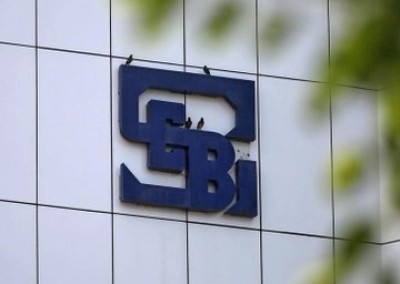
New Delhi, The Supreme Court on Friday observed that opaqueness is antithetical to transparency and institutions ought to adopt procedures that further the democratic principles of transparency and accountability as it directed the SEBI to allow Reliance Industries Ltd access to certain documents in a case connected with acquisition of company shares between 1994-2000.
The court also emphasised that initiating frivolous criminal actions against large corporations would give rise to adverse economic consequences for the country in the long run.
A bench headed by Chief Justice N.V. Ramana and comprising Justices J.K. Maheshwari and Hima Kohli said: "The approach of SEBI, in failing to disclose the documents, also raises concerns of transparency and fair trial. Opaqueness only propagates prejudice and partiality. Opaqueness is antithetical to transparency".
RIL had claimed the documents were required to exonerate it and its 107 promoters from criminal prosecution.
Chief Justice Ramana, who authored the judgment on behalf of the bench, said it is of utmost importance that in a country grounded in the rule of law, institutions ought to adopt procedures that further the democratic principles of transparency and accountability.
"Principles of fairness and transparency of adjudicatory proceedings are the cornerstone of the principles of open justice", he said.
The bench said the market regulator should show fairness and furnish documents sought by RIL, and the Security and Exchange Board of India has a duty to act fairly, while conducting proceedings or initiating any action against the parties.
"The constitutional mandate of SEBI is to act fairly, in accordance with the rules prescribed by law. The role of a regulator is to deal with complaints and parties in a fair manner, and not to circumvent the rule of law for getting successful convictions. There is a substantive duty on the regulators to show fairness, in the form of public co-operation and deference," said the top court, in its 43-page judgment.
The bench emphasised that the duty to act fairly by SEBI is inextricably tied with the principles of natural justice, wherein a party cannot be condemned without having been given an adequate opportunity to defend itself.
It also said initiation of criminal action in commercial transactions, should take place with a lot of circumspection and the courts ought to act as gatekeepers for the same. "Initiating frivolous criminal actions against large corporations, would give rise to adverse economic consequences for the country in the long run," the bench said.
Chief Justice Ramana said the simple test in this case is whether SEBI has launched the prosecution on the basis of the investigation report alone.
"The answer seems to be 'No' by SEBI's own admission in its reply where it states that the investigation report was inconclusive and hence further scrutiny of the transactions by experts was called for," he added.
RIL had sought records from the SEBI as well as two legal opinions by former apex court judge B.N. Srikrishna and former ICAI president Y.H. Malegam's report, where they examined the irregularities on the SEBI's request. RIL believed these documents would negate allegations of wrongdoing in the acquisition of shares. Also, these documents will have a major bearing on the criminal case being filed by the SEBI.
The SEBI had alleged that RIL, along with Reliance Petroleum, had circuitously funded the acquisition of its own shares in violation of the Sections 77 and 77A of the Companies Act, 1956. It had submitted that RIL cannot assert its right to seek documents contrary to the binding judgment by the Bombay High Court and the procedure provided in Code of Criminal Procedure (CrPC) which will arise only after taking cognisance and issuing process u/s 208 of the CrPC.
RIL moved the top court against the Bombay High Court's March 28 order, declining to grant any relief to access material gathered by the regulator.
In January 2019, the SEBI denied access to the documents and claimed the only object by the company was to frustrate the process of the law by pursuing frivolous litigation.
In 2002, chartered accountant S. Gurumurthy had filed a complaint with the SEBI alleging fraud and irregularities by RIL, its associate companies and their directors/ promoters, over two preferential placements of non-convertible debentures in 1994.


.jpeg)

